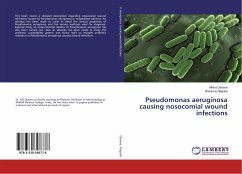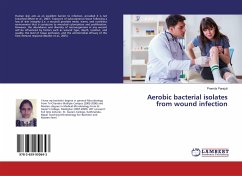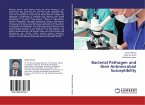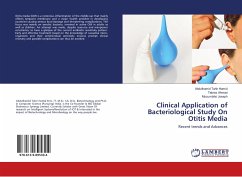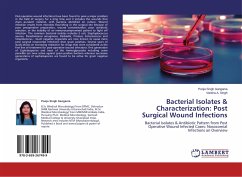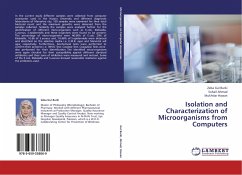Wound infections are one of the most common hospital acquired infections and are an important cause of morbidity and mortality. Wound infection can be caused by different groups of microorganisms like Bacteria, Fungi and Protozoa. Most commonly aerobic microorganisms include Staphylococcus aureus, Coagulase Negative Staphylococci (CoNS), Enterococci, Escherichia coli, Pseudomonas aeruginosa, Klebsiella pneumonia, Enterobacter, Acinetobacter etc. Common wound infections are Surgical site infections, Bite wound infections, Burn wound infections, Acute soft tissue infections, Diabetic foot ulcer infections, Leg and decubitus (pressure) ulcer infections. Surgical site infection rates in India to be between 4 to 30%. The control of wound infections has become more challenging due to widespread bacterial resistance to antibiotics and to a greater incidence of infections caused by methicillin-resistant Staphylococcus aureus and polymicrobic flora. The knowledge of the causative agents of wound infection has therefore proved to be helpful in the selection of empiric antimicrobial therapy and on infection control measures in health institutions.
Bitte wählen Sie Ihr Anliegen aus.
Rechnungen
Retourenschein anfordern
Bestellstatus
Storno


